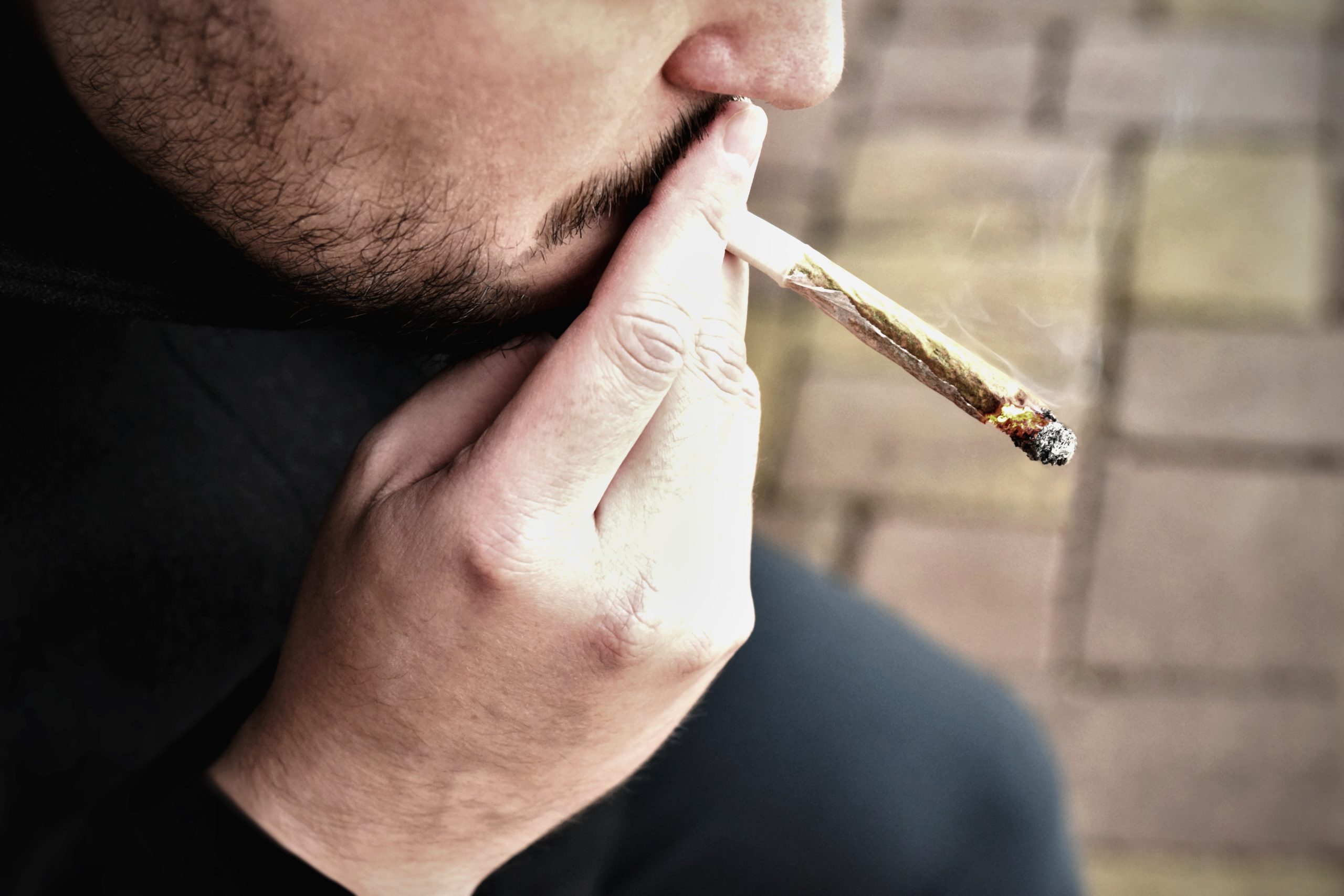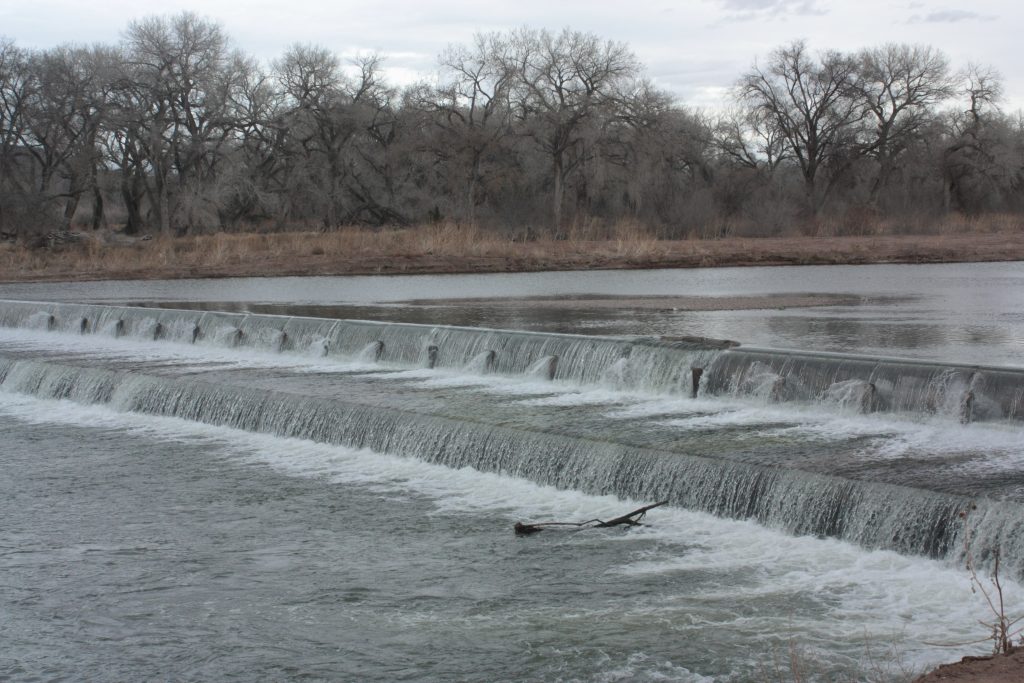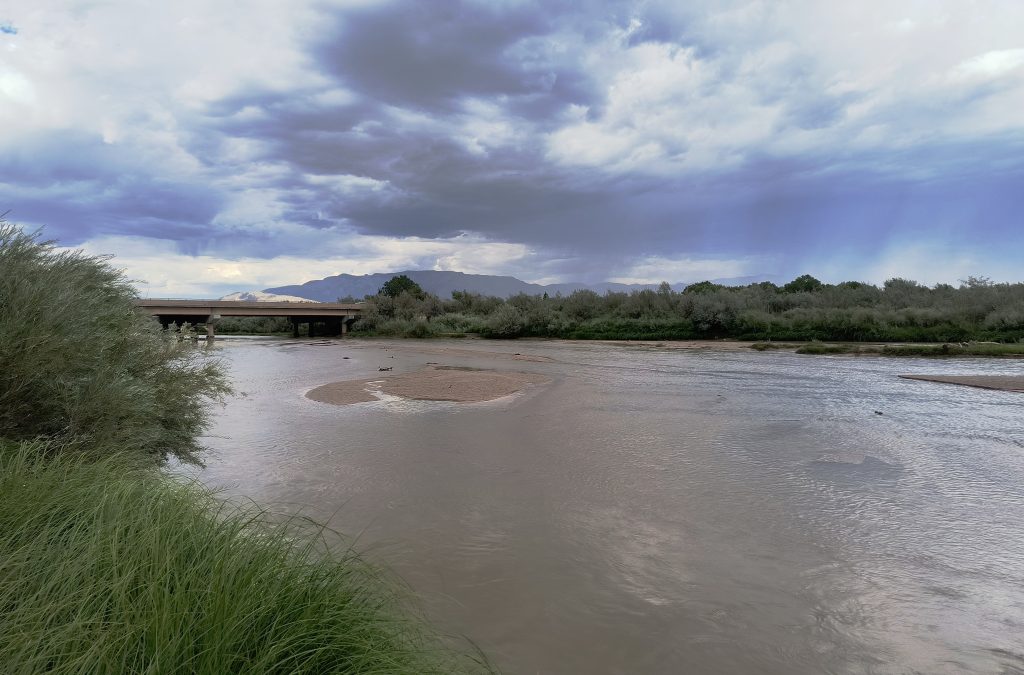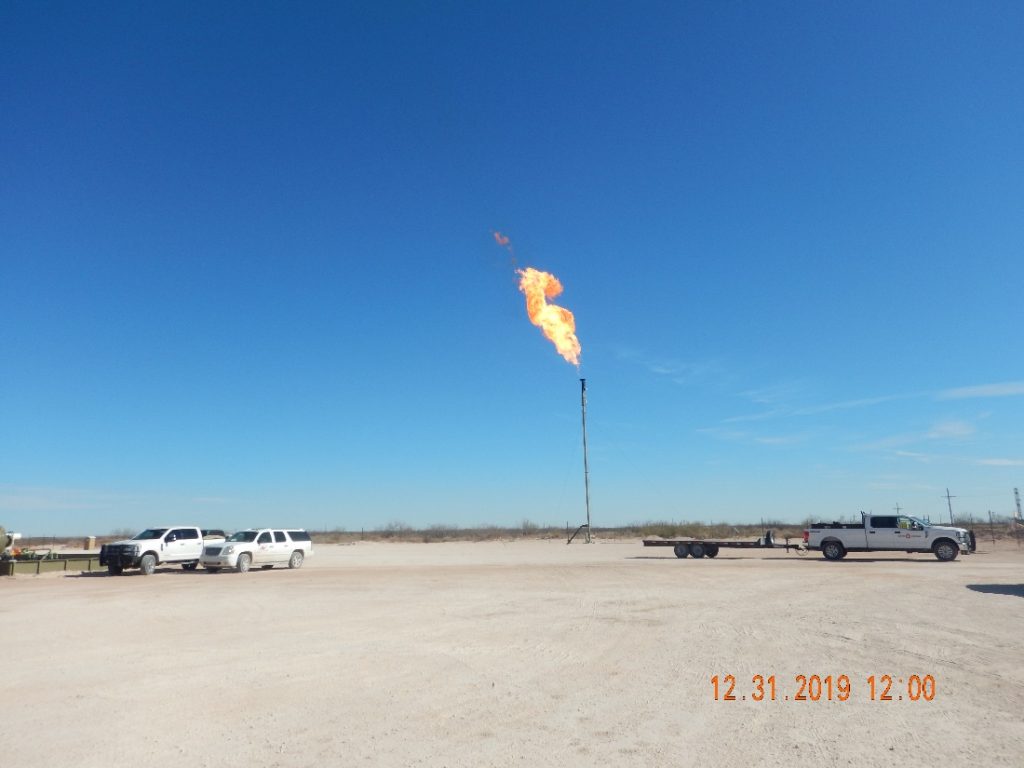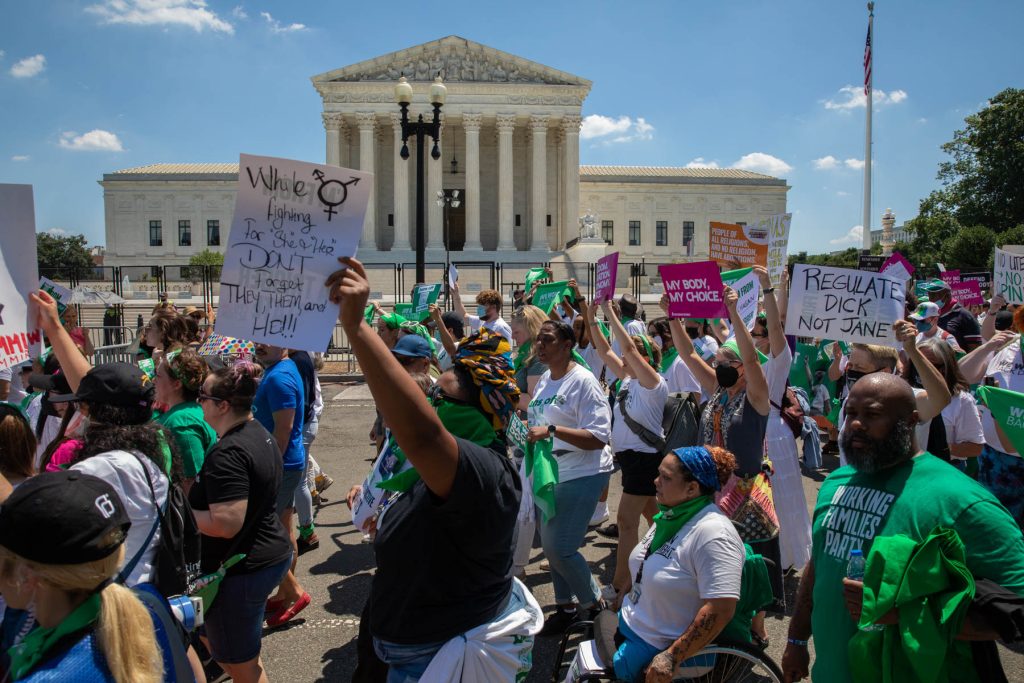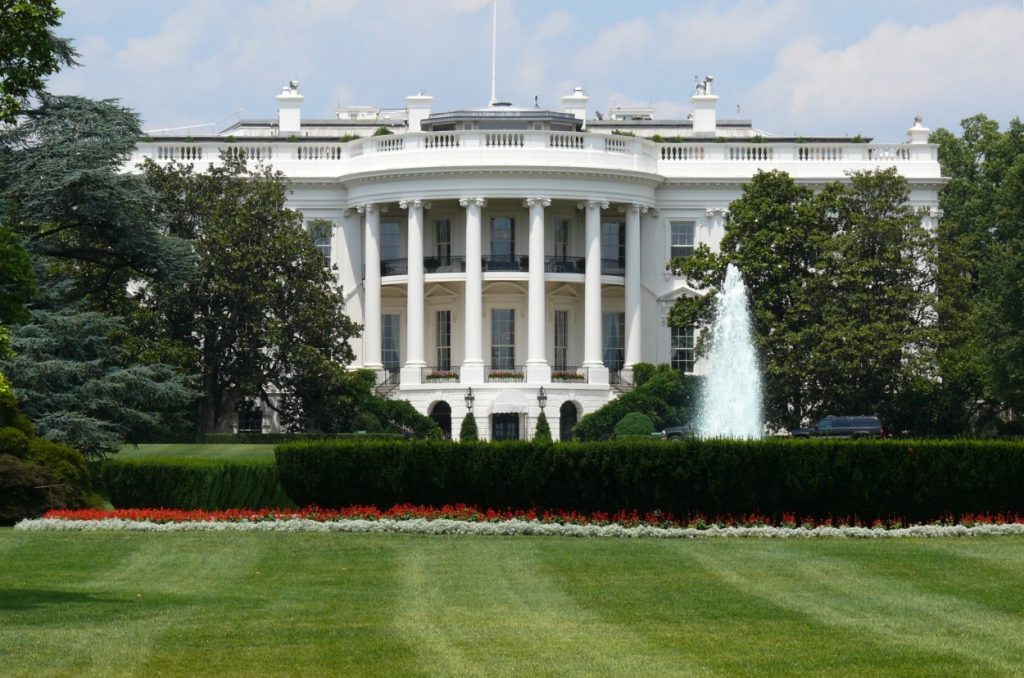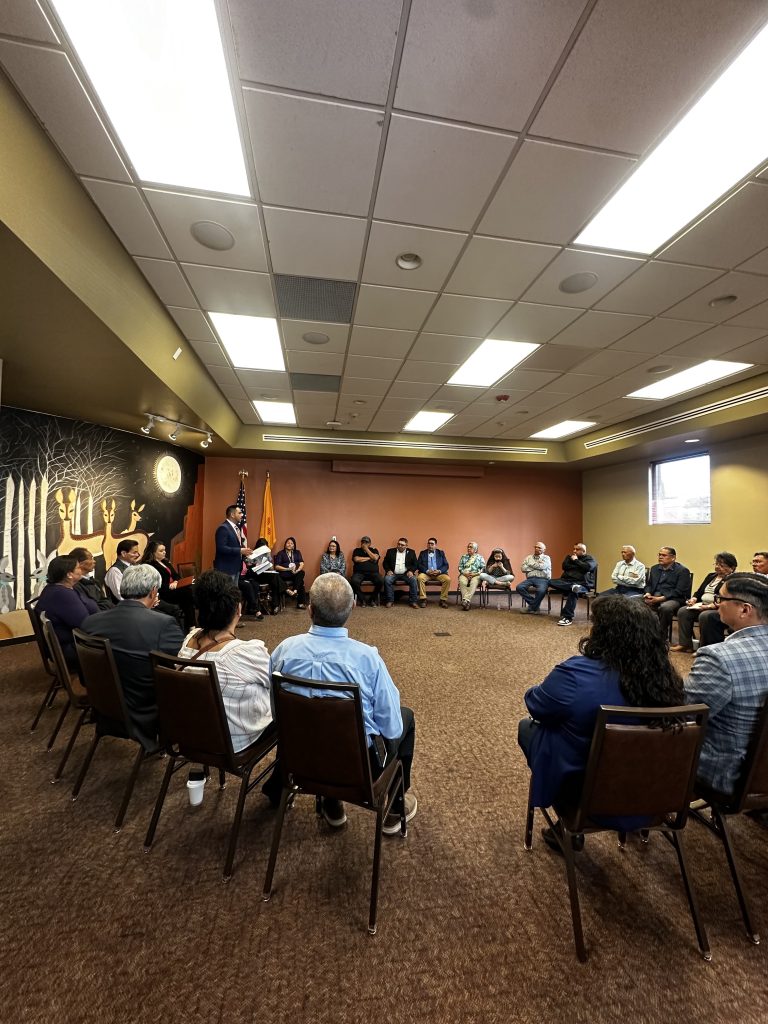A state district court judge ruled Thursday that the New Mexico Department of Health is allowed to limit who can become a reciprocal medical cannabis patient through department rules.
First Judicial District Court Judge Matthew Wilson said that his previous order to stop the department from proceeding with an emergency rule change regarding reciprocity did not prohibit the department from adopting rules regarding reciprocity in general.
“The writ does not say that the requirements for reciprocal participation imposed by the emergency rule and the mandate were incompatible with the [state law] or go beyond the Department of Health’s rulemaking authority,” Wilson said during the hearing on Thursday. “The writ does not forbid the creation or promulgation of a regulation through normal rulemaking process the court did not conclude the emergency rule conflicted with the act.”
The New Mexico Legislature approved medical cannabis patient reciprocity in 2019 as part of a larger overhaul to the state’s medical cannabis program. Last summer the state’s Medical Cannabis Program, overseen by the Department of Health, finalized rules for reciprocity, allowing medical cannabis patients from other states and jurisdictions to purchase and consume their medicine in New Mexico. By September, the Medical Cannabis Program notified New Mexico Dispensaries of an emergency rule change that would require reciprocal patients to provide a matching medical cannabis authorization and identification card. The program also said reciprocal patients could not be a New Mexico resident, which meant New Mexico residents could not use a medical cannabis authorization from another state with looser restrictions.
Medical cannabis producer Ultra Health quickly took legal action, arguing that the Department of Health overstepped its authority. In its petition, Ultra Health also argued that there are a number of reasons why New Mexicans might want to register as a reciprocal patient instead of registering as a medical cannabis patient in the New Mexico program, including not meeting the list of New Mexico’s qualifying conditions.
Judge Wilson ruled that the state failed to justify an emergency rule change and ordered the program to immediately change course. Then, in October, the Department of Health issued a notification of a formal rule change and in November appealed Wilson’s decision.
Ultra Health’s attorney, Jacob Candelaria, who is also a state senator, quickly asked the judge to admonish the state, claiming it had violated a court order.
After Thursday’s hearing, Candelaria told NM Political Report that he and his client Ultra Health accept Wilson’s ruling, but “respectfully disagree” with it.
“The only people that lost today are the patients, because what this does is, unfortunately, continue to muddy the waters on what is a crystal clear issue, which is that the department continues, for whatever reason, to take actions that are designed to restrict access to medical cannabis for medically frail New Mexicans and medically frail people in other states now,” Candelaria said.
The Department of Health did not make anyone available for an interview.
Candelaria asked rhetorically of the department, “Why continue to waste thousands and thousands of dollars of state resources and state money on attorneys fees and on this quixotic effort to simply deny people access to the medicine they need?”
Candelaria also noted that the rule change proposal from the department has not become official yet and until then New Mexicans can still qualify as a reciprocal medical cannabis patient.
After his ruling from the bench, Wilson noted that he specifically did not address an accusation by Ultra Health, through Candelaria, that the department and the Medical Cannabis Program misled patients with a mandate and rule change notification in late October. As noted in court records, the department and the Medical Cannabis Program published a notification of an emergency rule change on October 8, although that emergency rule change never took effect because Wilson ruled it invalid. Candelaria, in his motion to admonish the department, called it “an obvious misrepresentation of fact to the public.”
Wilson said the notification from the state that the emergency rule was adopted “is clearly untrue.”
“I can address that down the road,” Wilson said. “So that’s something the defendants or respondents need to be aware of.”
The pending rule change that would limit reciprocity to out-of-state patients and require identification to match a patient’s medical cannabis recommendation is awaiting approval from the state’s secretary of health.

